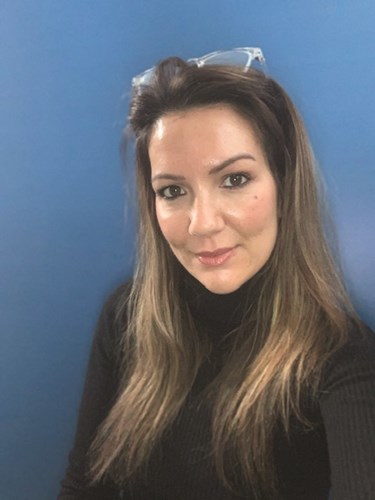Video Relay Interpreter for 999 BSL
Each issue, a different professional shares their expert advice and gives information to help you support your child. This time Emma, a Video Relay Interpreter, shares her thoughts.
Winter 2022 Families magazine

What does your job involve?
I interpret calls for different organisations, such as banks or utilities, as well as 111 and 999 calls now too. I also educate call handlers on how the Video Relay System works.
What is the new 999 BSL Emergency Video Relay Service?
999 BSL is for any deaf person who uses British Sign Language (BSL) and needs to contact emergency services. You can access it by downloading the 999 BSL app (available for iOS and Android devices) or visiting 999bsl.co.uk.
Why was 999 BSL created?
It was created because there was no service for deaf people to contact 999 in their first and preferred language. While there was an SMS service, using English is not the preferred option for a large part of the deaf community.
999 BSL offers equality and is something that should have been established a long time ago. Now we have the technology to implement this service and a team of very good interpreters to facilitate it.
What happens when a deaf person uses 999 BSL?
Once they hit the button to connect on the app or the website, they’ll see an interpreter on screen who will explain that the call will be put through to a BT operator who will then forward the call to the correct emergency service (police, ambulance, fire or coastguard). The interpreter will introduce this as a ‘999 BSL call’ so that the emergency call handler knows there’s a deaf person on the line.
The call handler will then ask several questions which will be interpreted for the deaf person. The interpreter will keep the deaf person updated throughout the call and will stay on the line as long as the call handler needs to talk to them.
How can parents prepare their children to use 999 BSL in an emergency?
Show them the app or website and demonstrate how to use it. It’s extremely simple to use, and in the case of a real call, interpreters will be there to walk the deaf child through it too. We know it can be frightening, but we aim to keep any caller as calm as possible.
What are the best and most challenging parts of your job?
It isn’t just a job, it’s a passion. I love the language and the fact that I can do something different every day and meet new people.
However, because this job is a passion, you can become invested. If you don’t learn self-care or how to debrief when needed, then certain things can stay with you. We have that opportunity here, which is really helpful. It can also be challenging learning to say ‘no’. We’re torn between knowing there’s a national shortage of qualified BSL interpreters, but also that we can burn out if we don’t look after ourselves.
